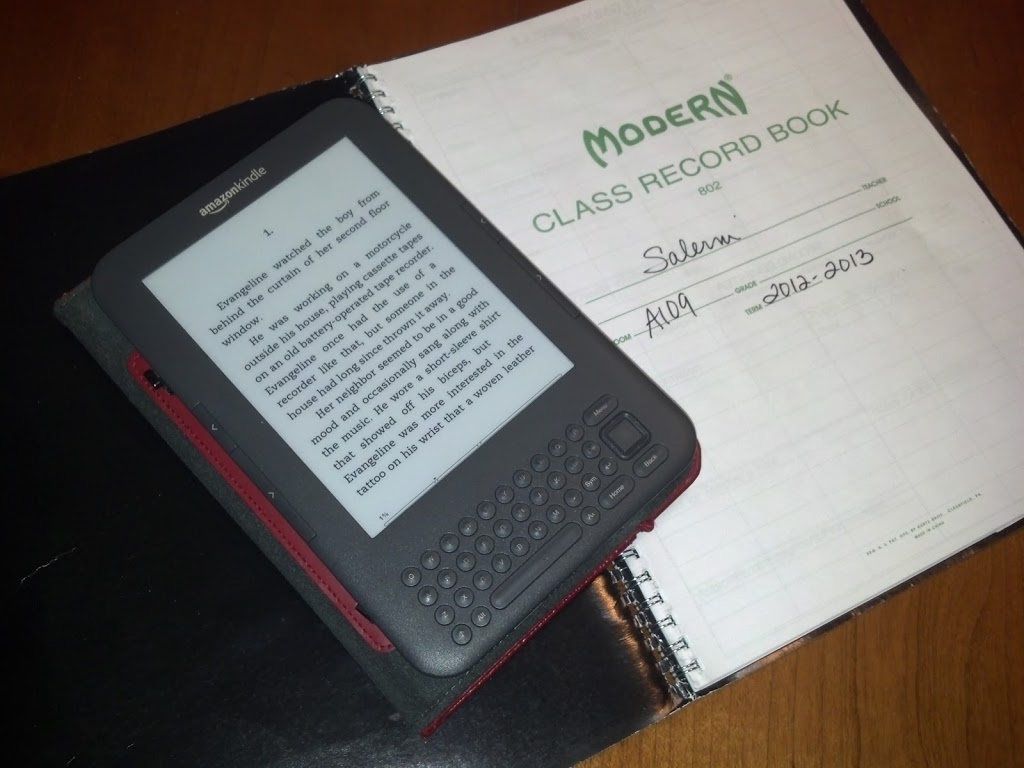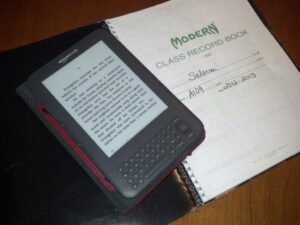My 5th grade students were excited when they heard the book I’d been telling them about was going to be published as a series. And both my reading classes wanted THE EIGHTH DAY to be their next read-aloud. When I cautioned them that the current version is unrevised and not the one that will be printed, they were even more adamant.
“We’ll be the only ones to hear the original version!!!”
This was a new thing for me. My other manuscripts were all YA. They weren’t necessarily inappropriate in content; they were just over my students’ heads. Reading my own book to my students was going to be a first.
I was surprised by how nervous I was. My mouth got dry, and I wasn’t sure I was going to make it through the first chapter. But the students were enthusiastic, interested, and encouraging. And wonderful reading-writing conversations ensued.
“Why do you have to end every chapter like that – so we don’t want to stop?” complained one boy. It was a rhetorical question. He knew the answer. (I checked.)
“How did you come up with the names for your characters?” asked a girl. I’ll never forget the dead silence in the class when I told them the characters chose their own names. They looked at each other with raised eyebrows, and I could see them trying to figure out if I was joking – or nuts.
And then there was the afternoon one of my students wailed in great distress, “I don’t get it! I don’t understand this book at all!”
I turned to him with concern – as a teacher and as an author – and asked, “What don’t you understand?”
Then he fired off a series of questions that proved he understood everything perfectly. He had noticed every event that was mysterious. He was halfway toward connecting the dots that would explain those events, and he was wondering all the things I wanted him to wonder.
I had one of those TEACHER REVELATION moments.
You see, some students do not start out as strong readers, and they know it. Their grades have always told them so. They know they’ve always been in the lowest reading group. They know they get extra help. When they start to become stronger readers (and when teachers stop giving them low level materials), they don’t recognize their own improvement. When they encounter a place where they have to draw their own conclusions or wait to get more information, they just assume they don’t understand … which is business as usual for them. They haven’t learned to differentiate between a comprehension problem and anticipation/suspense set up by the author.
I assured this young man that he was not confused. “You are exactly where the author wants you to be,” I said. “You are noticing all the right things and asking all the right questions. The author is trying to keep you puzzled right now. The answers are coming. You have to wait for them.”
This isn’t the first time I’ve had a conversation like this with a student. But usually the response is a frowny face from a downtrodden reader who thinks the teacher is trying to be nice.
This time, I got a big grin. My words carried more weight than usual because I was the author I was talking about.


What an amazing experience–and opportunity! Since you’re pre-revision, do you think you’ll be considering their various reactions to the story as you enter the revision process?
How neat is that to see? It’s also great that you can get feedback from students.
Awesome Dianne. I can see why you’d be nervous about your kids reading your book. But how awesome to get the feedback and for your student to make the realization as a reader.
Aw! What a great feeling! And it never occured to me that some young readers might confuse dissecting the mystery with incomprehension. So great that your student really felt like he’d made progress!
You have always been one of my first writing heroes, one of the first writers I met online. This just proves another reason for my feelings. How cool to share your work in this fashion with your students!
You are a brilliant teacher. Those kids are lucky to have you in their lives. 🙂
That is beyond incredible, Dianne. What a lovely and reciprocal event for both you and your students.
On a separate note, I miss teaching.
I love this story 🙂 I hope he continues on with more confidence, now. And how amazing is it that you are going through this experience with them!
And how much more awesome was it that you were the author AND the teacher? MUCH more, I’m sure.
What a revelation. Wow, thank you for sharing this experience with us. I’ll have to remember it, if I ever do a school visit…
That is very cool. Even cooler is the fact that these kids will be able to look back and say, I was one Mrs. Salerni’s students – before she got famous 🙂
That brought tears to my eyes when you mentioned his big grin. 😀
I LOVE how you get to share your new book with your students! They are so cute.
“…The answers are coming. You have to wait for them.”
This isn’t the first time I’ve had a conversation like this with a student.
This whole thing is what I go through with my beta-readers all the time. And they’re adults. Impatient, sometimes frustrating, want-it-all-spelled-out-for-them adults…
*sigh*
This post gave me goosebumps. I felt like I was right there in the classroom. I love it.
What an amazing teacher you must be. This lesson is so personal to you, and yet so important for your class. I am so impressed and would have loved to sit in on that class.
I love that story about the boy who thought he didn’t understand – what a confidence builder for him!
That’s awesome! I love when kids develop into stronger readers and something clicks and comprehension comes more easily. What a great moment for you!
Indeed, it’s hard to overcome the confusion of “I’m confused” and “I don’t have all the answers yet.”
Must be really cool to have your own focus group though!
How incredibly wonderful this is for both you and your students. I’m sure it is something none of you will forget.
Such a neat experience. I’m glad you are reading your book to your students. Nothing better to be the teacher that really does know what the author is thinking:)